Court charges 57 men arrested for having gay sex in Nigeria with being in a ‘secret cult’
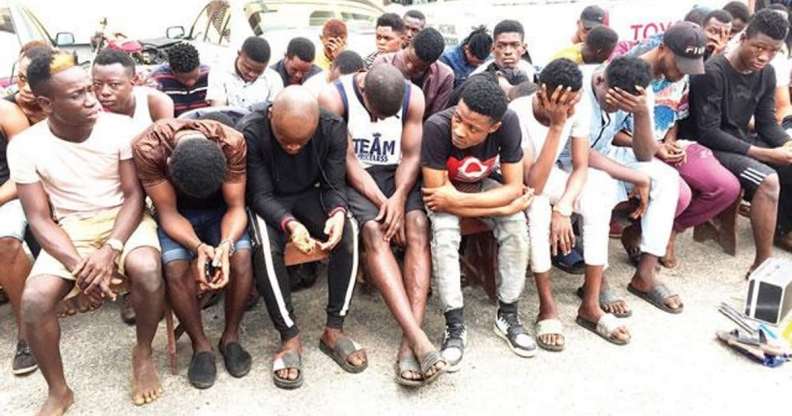
Some of the men who have been arrested and charged (lagos state police)
A court in Nigeria has charged 57 men who were detained for having gay sex with “belonging to a secret cult.”
The men were arrested this week at a hotel in Egbeda, Lagos, in the second such police action this month, after six men in the south-eastern state of Abia were arrested at a hotel for the same reason.
In Nigeria, people convicted of having gay sex can spend up to 14 years in prison – apart from in 12 northern states with Sharia law, where they are stoned to death.
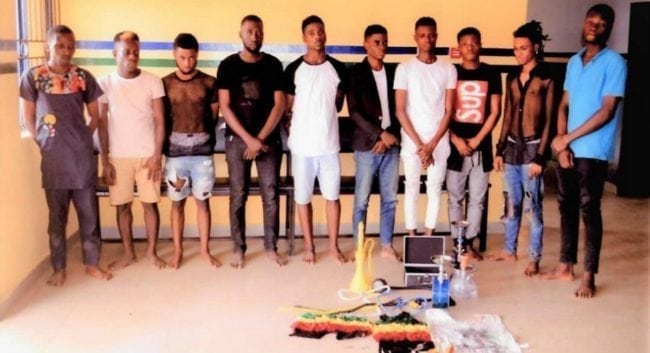
Some of the men who were arrested (lagos state police)
Since they were in Lagos State, the men will face a jail term rather than death, if convicted.
In an arraignment yesterday (August 30) before a chief magistrate in Lagos, the men were charged with three counts of conspiracy, belonging to a secret cult and unlawful gathering, according to the Premium Times.
All the defendants pleaded not guilty.
They were ordered by the magistrate to be remanded in prison custody unless their bail conditions were fulfilled, which involve a sum of ₦200,000 (£430).
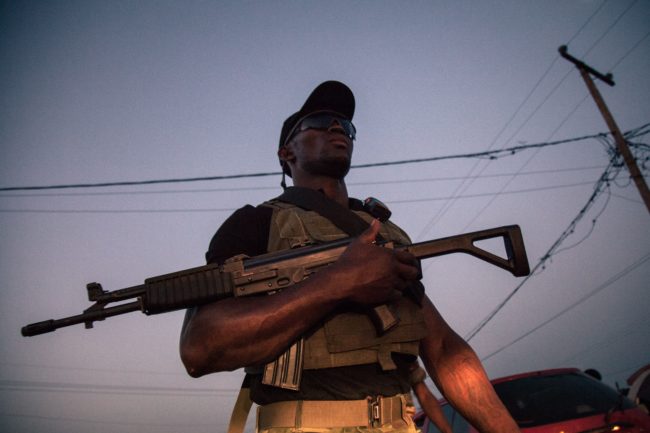
Those arrested tell a different story to Lagos police (ALEXIS HUGUET/AFP/Getty)
The case was adjourned until September 10.
Those arrested told a different story to the police’s account.
One of them, a 25-year-old, said: “It was a birthday party and majority of us don’t know one another.
“I was invited by my friend Muyiwa for the party, and we were not only guys in the party, [a] few ladies were with us and other ladies were in the hotel rooms getting dressed for the party.”
He described the scene as the hotel was raided, saying: “The police just barged in and arrested people; I was outside the hall buying a drink when I was arrested.
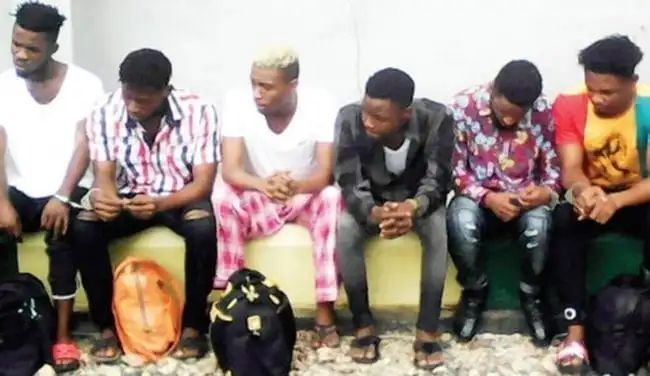
The men in Abia also denied being gay (abia state police)
“They also arrested [a] few ladies but they let go of the ladies. The police didn’t allow us know our offence until we reached the police station yesterday.
“At first, the police told us that they found some illegal drugs with us, such as shisha, tramadol and others, but those that owned [these] came out and claimed possession of [them].”
He continued: “They also accused us of being homosexuals. I am not one, I went there to party. They also accused us of being initiated but no initiation material was founded with us or at the venue.”
Another man also said he was at a birthday party at the hotel, while others were seemingly caught up in the chaos.
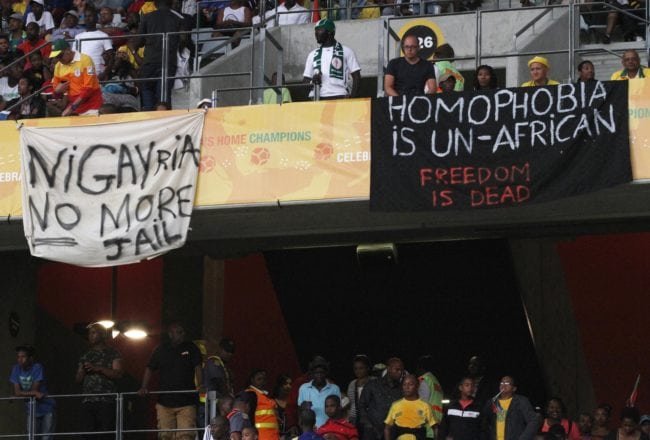
The men were also charged with three counts of conspiracy (Shaun Roy/Gallo Images/Getty)
One said he saw there was a party going on and decided to join in the fun, adding: “I am not gay and I don’t know any of them, it was when we got to the police station that I got to know that it was a birthday party.”
A 23-year-old who was arrested said he was simply staying at the hotel overnight, on the way back from a pageant he’d attended.
“I was at the reception when the police came and they told me to lie down, which I gladly did since I knew I had not committed any crime,” he said. “But I was accused of being a gay.
“All efforts to explain to the police and show them the evidence of my invitation to the pageantry and pictures proved abortive.”
Last year, 42 men were arrested at a hotel in Lagos state and charged with performing “homosexual acts.”
Earlier this year, Nigerian politicians hit out at Prime Minister Theresa May after the British leader promoted LGBT+ rights in the Commonwealth countries that still criminalise homosexuality.
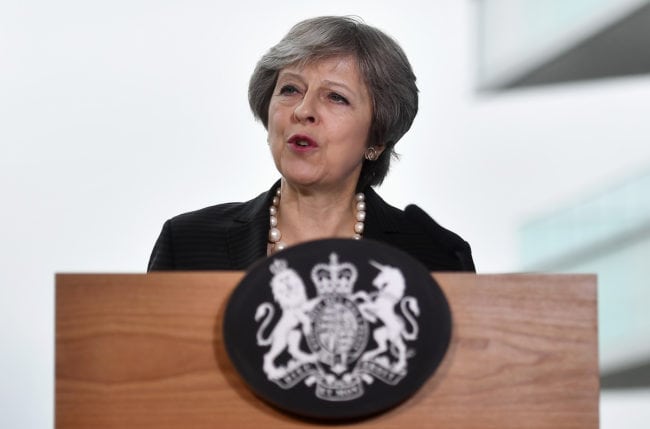
Britain’s Prime Minister Theresa May (CHARLES MCQUILLAN/AFP/Getty)
During the Commonwealth Heads of Government Meeting (CHOGM) meeting in April, May spoke about the UK’s regret at imposing anti-gay laws in former colonies.
She noted that 36 of the 53 Commonwealth countries continue to criminalise homosexuality, saying: “I deeply regret the fact that such laws were introduced, and the legacy of discrimination, violence and even death that persists today.”

